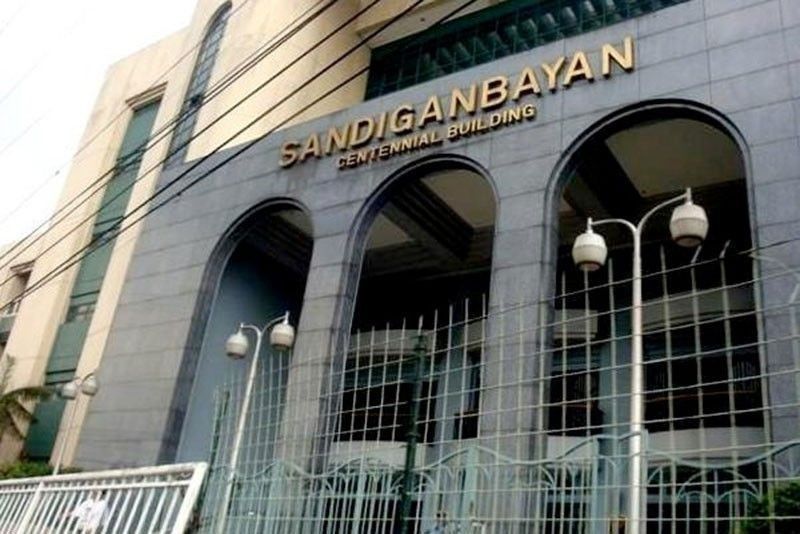Sandigan junks another Marcos case

MANILA, Philippines — The anti-graft court Sandiganbayan has dismissed another civil suit seeking to recover the alleged ill-gotten wealth of dictator Ferdinand Marcos and his widow Imelda due to supposed insufficiency of evidence.
“After a judicious scrutiny of all the pieces of evidence offered in this case, the Court finds that the plaintiff’s evidence falls short of the quantum
required by law. Thus, the Court is constrained to dismiss the instant complaint,” the Sandiganbayan Fourth Division said in its decision promulgated on June 30 but released only yesterday.
Docketed as Civil Case No. 0011, the suit filed by the Presidential Commission on Good Government (PCGG) on July 22, 1987, prays for the accounting, reconveyance, reversion or restitution of the alleged ill-gotten wealth of the Marcos spouses as well as their supposed cronies and dummies Ricardo Silverio and Pablo Carlos Jr.
The PCGG also prayed for the defendants’ payment of actual, moral, temperate and exemplary damages to the government, the amount of which shall be determined by the court.
The PCGG, in its suit, said that Silverio and Carlos gave the Marcos spouses “improper payments such as kickbacks and/or commissions in hundreds of thousands of US dollars” in exchange for the award to Silverio of a contract to supply Kawasaki scrap loaders and Toyota rear dump trucks.
The PCGG said Silverio and Carlos also received, for three consecutive years, “special accommodations, privileges and exemptions” by the Central Bank such as increased dollar import quota allocation for the importation of Toyota vehicles for Delta Motors Inc. and air-conditioning and refrigerating equipment in excess of the limits prescribed under the Central Bank rules and regulations.
The PCGG said Silverio and Carlos also took advantage of their connection with the Marcoses to obtain huge loans and other credit accommodations from various government financial institutions supposedly to finance the operations of their business ventures, including the Delta Motors Corp. (DMC).
Silverio founded DMC in 1961 and had acquired the exclusive right to assemble and distribute Toyota cars in the Philippines. He died in 2016 at the age of 87. Carlos, who died in 1998, served as executive vice president of DMC.
The PCGG said Silverio and Carlos were also extended “preferential status and treatment” in the implementation of the government’s Progressive Car Manufacturing Program (PCMP) and were granted multimillion-peso emergency loans as an additional capital infusion to Filipinas Bank, a commercial bank owned and controlled by Silverio.
Lastly, the PCGG said Silverio and Carlos acted as “dummies, nominees or agents” of the Marcos spouses in several corporations where the Marcos couple have substantial interests, such as Meralco Securities and the First Philippine Holdings Corporation.
The PCGG did not specify the total amount of assets of the defendants that it wanted to be reconveyed or forfeited in favor of the government. But among those it listed in its complaint were 27 parcels of land, three condominium units and a condominium apartment, two gasoline stations and a 7-Eleven convenience store all located in California, USA.
The PCGG likewise sought to forfeit a 28-unit apartment at Ecology Village in Makati City and a five-acre parcel of real property at an unidentified location.
The PCGG also listed the defendants’ shares of stocks with Silcor Finance, USA Inc., Astroair Services Inc., C&M Timber, Air Manila and DMC.
In its decision, however, the Fourth Division said the PCGG failed to present any evidence or witnesses that could prove that Silverio’s business ventures were given the supposed grants and privileges during the term of Marcos as president.
Furthermore, the court said the PCGG also failed to prove that the supposed grants and privileges “could not have been so obtained were it not for the close association of defendant Silverio with Ferdinand Marcos.”
The Fourth Division gave no weight to Silverio’s letter to Marcos dated Jan. 2, 1974 wherein the former was supposedly expressing his gratitude to the latter in connection with a project of one of his companies.
“A close examination of the said letter would only show that defendant Silverio was reporting about the status of a project and expressing his gratitude to defendant Ferdinand Marcos. There was no concrete proof that would show that defendant Marcos gave extraordinary grants or privileges to the unnamed company of Silverio,” the decision read.
Lastly, the Fourth Division said the PCGG failed to show that the assets it listed in its complaint were illegally acquired by the defendants.
“The Annex ‘A’ of the complaint listed several properties, both real and personal, allegedly acquired by the defendants through ill-gotten means. However, there was no showing as to the manner how the defendants Silverio, Carlos and Marcos illegally acquired the said properties. More importantly, there was no evidence presented to show that these properties were in fact owned by them and that the same were ill-gotten,” the Fourth Division said.
The decision was penned by division chairman Associate Justice Alex Quiroz with the concurrence of Associate Justices Lorifel Pahimna and Edgardo Caldona.
This marked the fifth civil forfeiture case against the Marcoses recently dismissed by the Sandiganbayan due to insufficiency of evidence.
In 2019, anti-graft court had dismissed Civil Case Nos. 0002, 0007, 0008 and 0034 which sought to recover from the former first family ill-gotten wealth amounting to P200 billion, P267.371 million, P1.052 billion and P102 billion, respectively.
There were a total of 43 civil forfeiture cases filed by the PCGG at the Sandiganbayan against the Marcos family and their cronies since Marcos’ ouster through the 1986 mass revolt.
To date, 16 of these cases remain pending, 24 were already dismissed, two were ruled in favor of the government and one was indefinitely archived.
- Latest
- Trending































